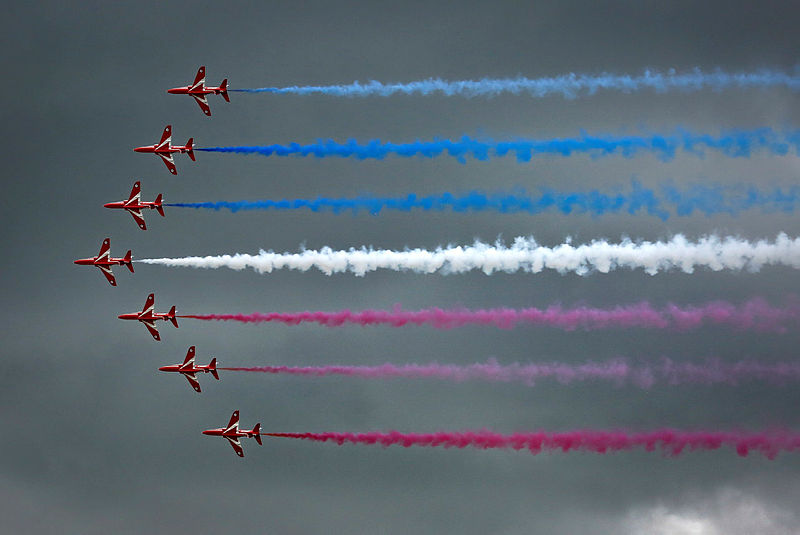
France is on the move. Since the release of its 2013 White Paper on Asia–Pacific Security, the country’s been pursuing its interests in the region with an ebullient energy. At the same time, Australia’s own strategic priorities are bringing us into closer contact with France on important matters, with the choice of French company DCNS to build our future submarines being just one of these. The convergence in the Australia–France relationship is more meaningful than dollars and project management.
At a time when the United States’ strategic interest in this region might be about to wane, France’s strength and long-term intentions offer opportunities that we’ll grasp if we’re observant and prepared. That will only be possible if Australia makes the effort to truly understand France. We must also overcome attitudes that paint France simply as a provocative interloper, or as a partner for occasional disaster relief operations and military hardware purchases. Certainly from the 1960s into the 1990s, France’s activities defied international conventions, and the bilateral relationship suffered. Nuclear tests in French Polynesia, challenges by Australia and New Zealand at the International Court of Justice and violent uprisings in New Caledonia are still well within living memory. But that sour taste has little bearing on the new reality for Australia (save perhaps the problem of fallout). France has a more complex and constructive role to play in the region and Australian policy should respond accordingly.
Our Comprehensive Strategic Partnership (CSP) declares like-mindedness on a range of values and international issues, and the 2016 Australian Defence White Paper acknowledges France as a dependable partner in disaster relief and anti-piracy, affirming Canberra’s support for Paris’ counterterrorism work. That’s to say nothing of our historic cooperation in war, countless people-to-people connections, France’s stable governance of its regional territories, or its shares worth billions of euros in the European Investment Bank which support development projects across the Pacific.
It’s tempting to leave strategy at that. In these uncertain times, France’s regional presence comes as something of a relief: democracy, good business, prosperity, security, low risk, no worries.
Except that not analysing France and not being curious about its intentions and capacities leaves us seriously under-informed. Distance is an illusion. France’s preoccupations at home, in NATO, in the EU and at the UN are significant to our shared world-view, but they also distract from the influence that France can wield in our region.
By luck, choice and circumstance, the Indo–Pacific interests of France and Australia now overlap in unprecedented ways.
At this year’s Shangri-La Dialogue, French Defence Minister Jean-Yves Le Drian announced that France would coordinate European naval patrols in support of freedom of navigation in the South China Sea. France has also invoked UNCLOS to expand an overseas EEZ that’s already the world’s second-largest and secure rights to much-needed oil and gas reserves, including below the seabed off New Caledonia.
That move suggests an intention to stick around and participate further in regional economic development, a welcome prospect for capacity-building. But it also implies that France may be reluctant to give up New Caledonia if the territory votes for independence in 2018, which should alert us to lingering resentments of French sovereignty among the indigenous Kanaks. If the referendum result is contested, would Australia understand the French and Kanak positions in sufficient depth, and make policy to contribute constructively to a peaceful resolution?
And how will Australian shipbuilders forge lasting and productive relationships with DCNS as it builds the future submarines? It’ll be logical for France to try and understand our strategy in order to maximise its commercial returns, but will we follow that logic to understand French industrial policy, to our own strategic benefit? If the decision is made to upgrade the Shortfin Barracuda submarine from diesel-electric to nuclear power, can we assume Australia embrace French expertise?
Australia seems to register matters like these as stand-alone episodes, strategically unconnected and limited to discrete areas of policy. But together they play directly and saliently on every tenet of our regional strategy: the rules-based order, stability to our near north and credible military capability. France shows every intention of continuing with policy that corresponds to ours. The difficulty is that, over many years of relative quiet, Australia has failed to appreciate France’s comprehensive strategy. It’s time to refresh our interpretation. But how?
One crucial lesson from the nuclear decades is that France has a longevity and a freedom of action independent to those of other powers in the Indo-Pacific. Capable, potent, experienced, embedded and dispersed, France is a credible presence, able to act quickly and decisively, but just detached enough from the region’s everyday political whirlpools to make cautious, forward-looking judgements. France’s stance on the South China Sea dispute, in favour of freedom of navigation, suggests Paris is prepared to play a leadership role beyond Europe.
Whatever follows, strategically there may soon be no arm’s-length distinction between France proper and France in our near neighbourhood. It’s in Australia’s interest to understand what the metropole is thinking and doing. As the Pacific becomes an increasingly contested place, there will be harder challenges, and less readable neighbours. Ensuring that the growing Australia–France relationship serves regional stability depends on our deep understanding of France. Analysts and policymakers should make haste slowly.

